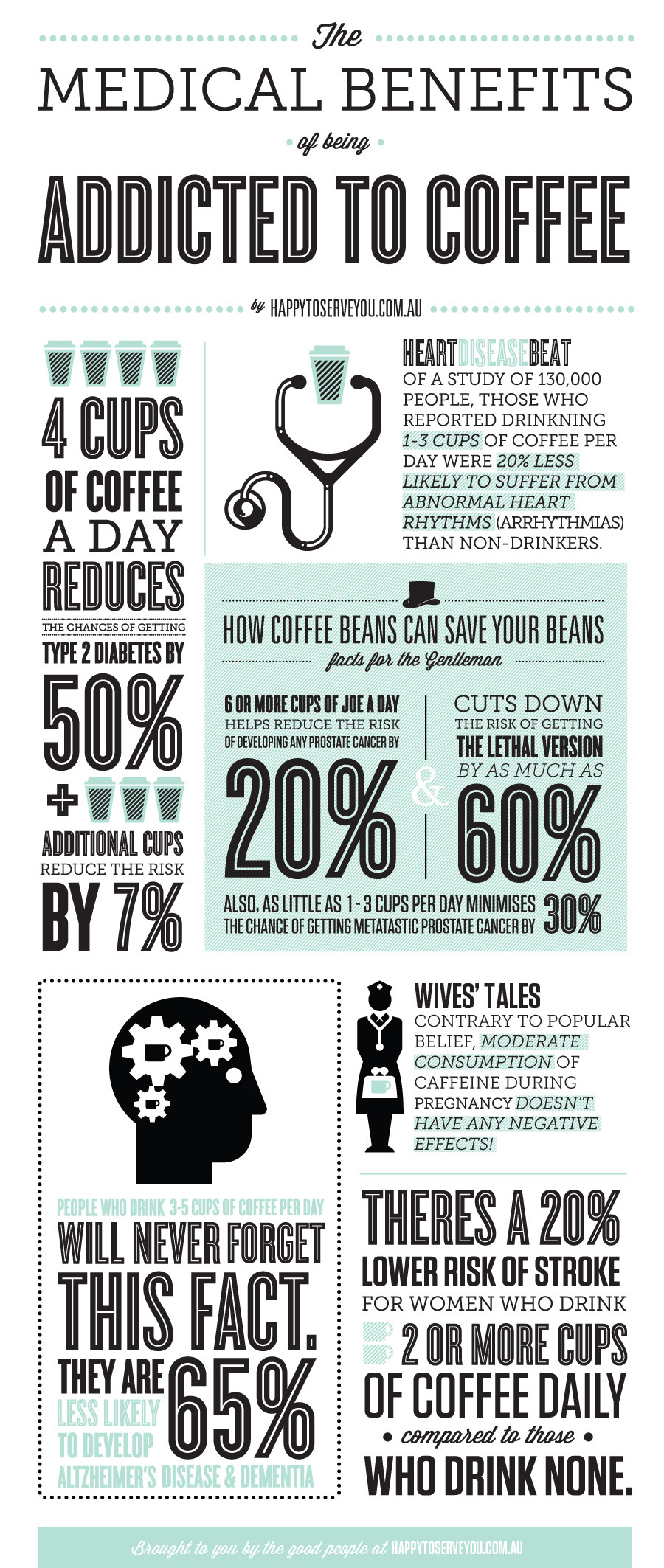Lighthearted Saturday: Coffee
I’d like to share this lovely infographic about coffee and caffeine consumption with you, but since this is a “sports” blog I’m going to do some Googling and tie this to sports before showing the graphic…
Caffeine is a performance-enhancing drug so I wonder if caffeine would ever be a banned substance in a sport. Probably not, as, according to Wikipedia, Caffeine has not often been baned:
Historically, coffee and thus caffeine was illegal for some classes in Mecca in parts of the 16th century, in the Ottoman empire, Charles II of England tried to ban it in 1676, Frederic II of Prussia banned it in 1777, and coffee was banned in Sweden in the years 1756-1769, 1794–1796, 1799–1802, and 1817-1823. The bans on coffee have often had religious, economic, or political reasons rather than being based on concerns for the well-being of the population.
There is, however, a medical study that examines the short-term effects of caffeine during “team sports.”
Caffeine is the most widely used drug in the world, commonly ingested in coffee, tea, soda, and energy drinks. Its ability to enhance muscular work has been apparent since the early 1900s. Caffeine typically increases endurance performance; however, efficacy of caffeine ingestion for short-term high-intensity exercise is equivocal, which may be explained by discrepancies in exercise protocols, dosing, and subjects’ training status and habitual caffeine intake found across studies. The primary aim of this review is to critically examine studies that have tested caffeine’s ability to augment performance during exercise dependent on nonoxidative metabolism such as sprinting, team sports, and resistance training. Blah blah boring words that don’t make sense to normal humans. Science!
Now on to the fun picture!
